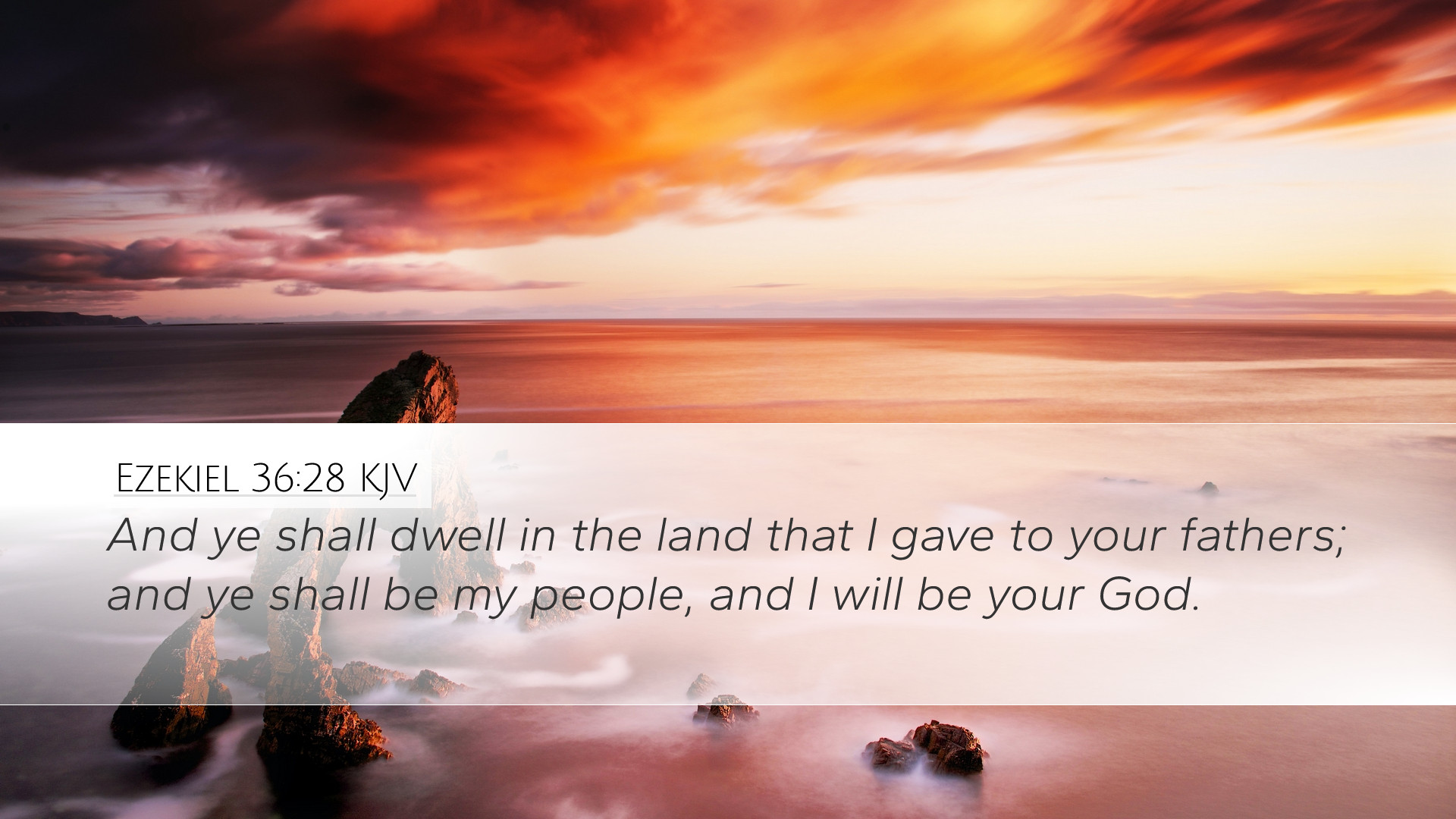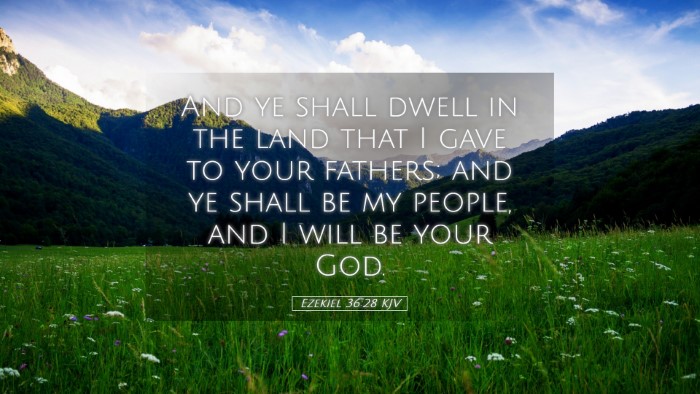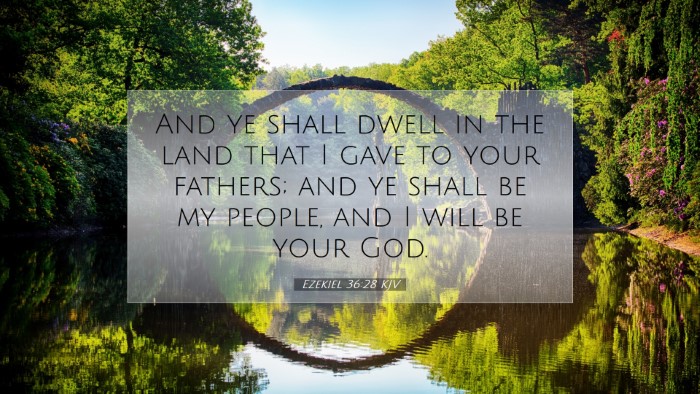Ezekiel 36:28 - Biblical Commentary
Verse: "And ye shall dwell in the land that I gave to your fathers; and ye shall be my people, and I will be your God." (Ezekiel 36:28, KJV)
Introduction
The promise given in Ezekiel 36:28 forms an essential part of God's covenant with Israel, a reaffirmation of His commitment to restore His people and their relationship with Him. This commentary synthesizes insights from notable public domain sources such as Matthew Henry, Albert Barnes, and Adam Clarke, exploring the theological, historical, and practical significance of this verse.
Theological Significance
Divine Restoration: The context of Ezekiel 36 discusses the restoration of Israel after a period of exile and judgment. Matthew Henry emphasizes God’s initiative in the restoration process, illustrating God's grace despite Israel's unfaithfulness. The promise of returning to their land signifies not merely geographical relocation but also spiritual renewal and reconciliation with God.
Covenant Relationship: The phrase "ye shall be my people, and I will be your God" serves as a foundational statement of the covenant relationship established between God and Israel. Albert Barnes notes that this covenant is not just about land but about identity and belonging. This declaration foresees a transformation where Israel would recognize their rightful place as God’s chosen people, underlining the importance of communal identity in faith.
Fulfillment in Christ: Adam Clarke highlights that this promise extends beyond physical restoration and points towards the New Covenant established through Christ. In the New Testament, believers are grafted into the promises made to Israel, demonstrating the continuity of God's salvific plan throughout Scripture. This passage calls the church to understand their role as the people of God, now spiritually housed within the body of Christ.
Historical Context
The historical backdrop of Ezekiel’s prophecy is vital in unpacking its meaning. After years of disobedience, Israel faced exile, which was perceived as abandonment by God. However, through Ezekiel, God reassured them of His unchanging love and commitment.
- Exile and Hope: During the Babylonian captivity, the Israelites struggled with despair and questioned their status as God's people. Matthew Henry notes that God’s promise of restoration was intended to rekindle hope and inspire faith among the exiles.
- Geopolitical Implications: The mention of "the land that I gave to your fathers" signifies the Abrahamic covenant, reaffirming God's sovereignty over nations and history. Barnes explains how this promise served to remind Israel of their heritage and the irrevocable nature of God’s promises.
Practical Applications
This verse carries profound implications for contemporary believers and communities of faith today. It encourages a deeper understanding and appreciation of God’s faithfulness.
- Identity in God: Believers today are invited to reflect on their identity as God’s people. This verse affirms that God claims His people and they, in turn, find their primary identity in Him. Clarke suggests that understanding our identity in Christ builds a firm foundation for faith and practice.
- The Assurance of God’s Presence: The assurance "I will be your God" serves as a reminder of God’s continual presence and guidance. It encourages believers to seek a vibrant relationship with God, resting in His faithfulness.
Conclusion
Ezekiel 36:28 encapsulates the essence of God’s enduring covenant love and His commitment to restore and renew His people. The insights drawn from commentaries invite us to deeper faith and reliance on God’s promises. As individuals and as a community, we are called to embrace our identity as God's chosen people, to cherish His presence, and to participate in the ongoing story of redemption that unfolds throughout Scripture.


